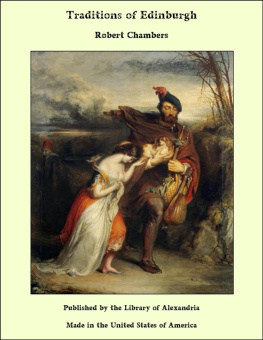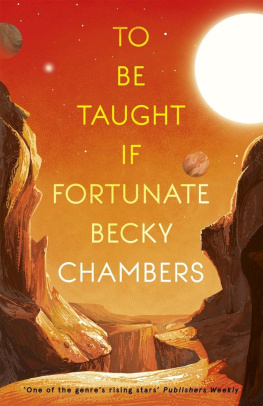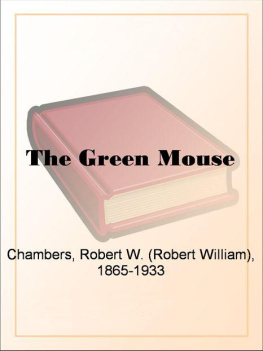
Praise for this book
T.S. Eliot famously asked, Where is the wisdom we have lost in knowledge? Where is the knowledge we have lost in information? The answer: it is here, in this book, in the accumulated knowledge of Robert Chambers six decades of experience and thinking about development, and in the great wisdom he brings to bear on the fantasies and foibles of practitioners, academics and funders. All of them should take time to read this important book and to think hard about what it means when they go back to their work.
Ian Smillie, President of the Canadian Association
for the Study of International Development, 201517
Robert Chambers is a global public good, a true development guru that all should follow. In his latest work, he explores our claims to be able to distinguish between what is true and false what do we know and why do we so often get it wrong? Drawing on almost 60 years of relentlessly questioning orthodoxies and standing up for those excluded from power and decisions, Robert Chambers asks us to fundamentally question the nature of such knowledge, its biases and blind spots. Then with his customary energy and optimism, he shows how we can know better and thus do better. An indispensable book.
Dr Duncan Green, Strategic Adviser, Oxfam and author of
How Change Happens
This book is a salvo against development smugness, much needed at a time when the Sustainable Development Goals are beginning to gain traction. Taking head-on the central question of how we know, and how that shapes what we do through development policy, Chambers employs his clear eye and gently acerbic tongue to show why development professionals need to be more humble, more self-reflexive, and more passionate about our mission.
Gita Sen, Distinguished Professor & Director, Ramalingaswami
Centre on Equity & Social Determinants of Health,
Public Health Foundation of India
Always prescient and always wise, Robert Chambers has given development scholars and practitioners yet another gift with this provocative call for a revolution in development knowing, thinking, and practice. But what a commentary on development in practice, that the supposed beneficiaries of development continue to be marginalized and dispossessed. Weep for them and their needless suffering but read Chambers new book and get into action!
Professor Robin Broad, International
Development Program, American University
Robert Chambers once again demonstrates that assessing both the intractable and the emerging development challenges of today is fundamentally about values from the personal to the socio-economic and political and the courage to affirm them.
Ricardo Wilson-Grau, Independent international evaluator with
Ricardo Wilson-Grau Consultoria, Rio de Janeiro, Brazil
In Can We Know Better? Robert Chambers provides a stark exposition of the errors of power, and their depressing frequency in development practice. Exposing the tendency of all of us to seek comfort in the myths and misperceptions of our professions with wit, compelling stories and evidence, he lays out the challenge to shift development thinking to a truly universal framing. At the heart is a personal challenge to recognize when we are misled by interests, biases and tricks of memory into ignoring or misrepresenting the realities of change. He shows how, without a commitment to reflecting on ourselves, we run the real risk of getting both the big and small things completely wrong.
Andrew Norton, Director of the International Institute
for Environment and Development
Robert Chambers Can We Know Better? is a powerful and timely call for those working in development to stand back and reflect critically on how we know and how we might know better. In this book, Chambers exhaustively categorizes manifestations of personal, political and methodological error, bias and privileging. Drawing from a wealth of case study material he illustrates the dramatic and even catastrophic developmental impact of error. He challenges us to know better by recognizing and resisting through critical reflection tied to inclusive rigour and a revolutionary professionalism all forms of bias and ignorance. For all those development professionals and practitioners we who are not last but who claim to act for those who are last this is a profoundly important book.
Jeremy Holland, Associate, Social Development, Oxford Policy Management
About the author
Professor Robert Chambers is a research associate of the Institute of Development Studies, at the University of Sussex, UK, which has been his base since 1969 with periods in other countries. His educational background is in natural sciences, history and public administration. His main administrative and research experience in development has been in East Africa and South Asia. Among other work he has been a field administrator and trainer of administrators in Kenya and East Africa, a field researcher in Kenya, India and Sri Lanka, an evaluation officer with UNHCR and a project specialist with the Ford Foundation in India.
Books he has written include Rural Development: Putting the Last First (1983), Challenging the Professions (1993), Whose Reality Counts? Putting the First Last (1997), Participatory Workshops (2002), Ideas for Development (2005), Revolutions in Development Inquiry (2008), Provocations for Development (2012) and Into the Unknown: Explorations in development practice. His current work and interests include participatory methodologies; participation, power and complexity; professional perceptions and the realities of poverty and well-being; and going to scale with community-led total sanitation.
Practical Action Publishing Ltd
The Schumacher Centre,
Bourton on Dunsmore, Rugby,
Warwickshire, CV23 9QZ, UK
www.practicalactionpublishing.org
Robert Chambers, 2017
The right of the author to be identified as author of the work has been asserted.
The PDF version of this book is distributed under a Creative Commons Attribution Non-commercial No-derivatives CC BY-NC-ND license. This allows the reader to copy and redistribute the material; but appropriate credit must be given, the material must not be used for commercial purposes, and if the material is transformed or built upon the modified material may not be distributed. For further information see https://creativecommons.org/licenses/by-nc-nd/4.0/legalcode
Product or corporate names may be trademarks or registered trademarks, and are used only for identification and explanation without intent to infringe.
A catalogue record for this book is available from the British Library.
A catalogue record for this book has been requested from the Library of Congress.
ISBN 9781853399442 Hardback
ISBN 9781853399459 Paperback
ISBN 9781780449449 Library Ebook
ISBN 9781780449456 Ebook
Citation: Chambers, R. (2017) Can We Know Better? Reflections for Development, Rugby, UK: Practical Action Publishing, .
Since 1974, Practical Action Publishing has published and disseminated books and information in support of international development work throughout the world. Practical Action Publishing is a trading name of Practical Action Publishing Ltd (Company Reg. No. 1159018), the wholly owned publishing company of Practical Action. Practical Action Publishing trades only in support of its parent charity objectives and any profits are covenanted back to Practical Action (Charity Reg. No. 247257, Group VAT Registration No. 880 9924 76).











